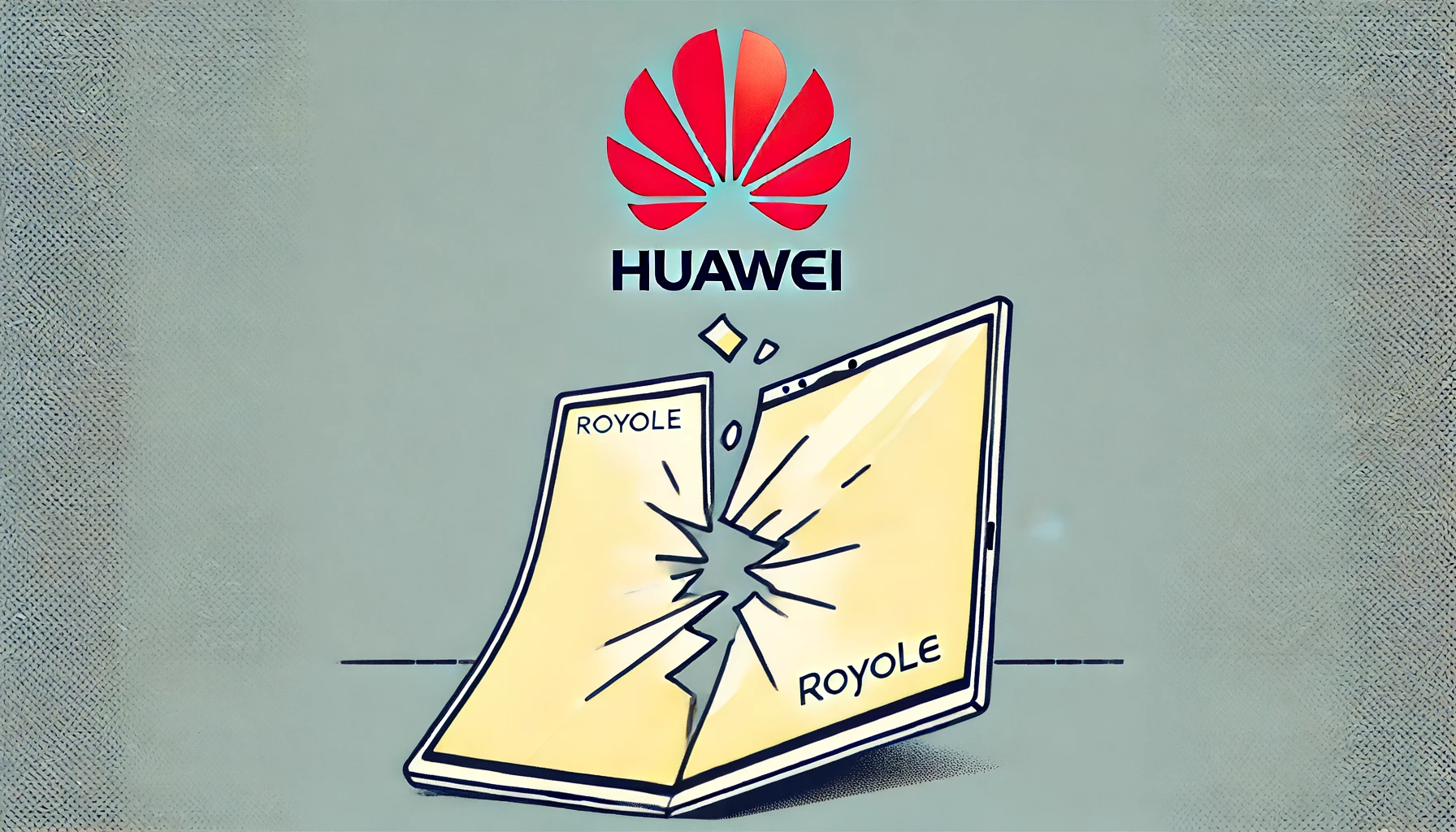
Huawei Technologies, the world’s largest telecommunications equipment vendor, firmly denied any plans to invest in Royole Corp, a former Chinese tech darling known for its pioneering foldable smartphones. This statement was issued in response to a viral WeChat post by Liu Shuwei, a former independent director of Royole, now the director of the China Enterprise Research Centre at the Central University of Finance and Economics in Beijing.
Liu’s post claimed that Huawei had sought to invest in Royole during its early years to secure exclusive access to its flexible screens—a proposal Royole allegedly declined.
“Huawei has no such investment plans and has not initiated any investment requests,” the Shenzhen-based telecoms giant stated on Monday, rebuffing the claims made by Liu. This brief but firm denial further shadows the reputation of Royole, a company that once soared to a valuation of over US$6 billion with high-profile backers such as Shenzhen Capital Group, IDG Capital, and Green Pine Capital Partners.
Royole’s financial woes have deepened significantly. On May 15, creditors successfully petitioned for the company’s bankruptcy in a Shenzhen court. Recent court documents reveal that the first creditors’ meeting is scheduled for September, indicating a pivotal moment for the company’s future.
Founded in 2012 by Bill Liu Zihong, an electrical engineering graduate from Tsinghua University with a PhD from Stanford University, Royole captured global attention with its innovation in flexible display technology. Inspired by an idea that came to Liu while relaxing on Stanford’s lawns, the company set out to revolutionize display technology.
Royole’s headquarters in Shenzhen became the epicenter of their ambitious projects, including the FlexPai, the world’s first foldable smartphone launched in 2018, and in 2014, the world’s thinnest full-color flexible display. The company envisioned diverse applications for its flexible screens, from smart home gadgets and wearable displays to 3D mobile theaters and automotive infotainment systems.
Despite these groundbreaking innovations, Royole’s business strategy did not hold up under market pressures. Analysts like Amber Liu from Canalys pointed out the difficulties in commercializing products like smartphones solely based on screen technology. “The success of a mobile phone product depends on numerous factors, including software and hardware development, market branding strategies, and other new technologies,” said Liu.
Royole Corp’s Financial Performance (2018-2020)
| Year | Revenue (in million yuan) | Net Loss (in million yuan) |
|---|---|---|
| 2018 | 0.25 | 802 |
| 2019 | 100.1 | 1,100 |
| 2020 | 230.5 | 961 |
Royole’s attempts to go public faced multiple setbacks. The company failed in its efforts to list on the U.S. stock market from 2019 to 2021 and similarly floundered in its bid to launch a US$22 billion initial public offering (IPO) on Shanghai’s Star Market in early 2021. According to its IPO prospectus, Royole reported a 961 million yuan loss in the first half of 2020, following substantial losses in the preceding years.
- 2012: Royole Corp is founded by Bill Liu Zihong in Shenzhen.
- 2014: The company unveils the world’s thinnest full-color flexible display.
- 2018: Royole launches the FlexPai, the industry’s first foldable smartphone.
- 2019-2021: Royole’s attempts to go public in the U.S. and China are unsuccessful.
- 2021: The company fails to complete a US$22 billion IPO in Shanghai.
- 2023: Reports emerge of Royole’s financial crisis and bankruptcy proceedings commence.
While Royole has struggled, the global market for foldable smartphones continues to expand. According to research firm Canalys, shipments of foldable smartphones are expected to rise to 20.6 million units in 2024, up from 15.5 million units in 2023. This growth underscores the increasing consumer demand for innovative mobile technology, even as early pioneers like Royole grapple with operational challenges.
As Royole navigates its financial difficulties, the spotlight remains on its ability to restructure and potentially re-enter the market. The inaugural creditors’ meeting in September will be crucial in determining the company’s fate.
For Huawei, the denial of investment interest in Royole aligns with its broader strategic focus. The tech giant continues to diversify its portfolio and strengthen its position in core areas such as telecommunications and consumer electronics, steering clear of the troubled waters Royole currently finds itself in.
Royole’s story serves as a cautionary tale about the challenges of sustaining innovation without a robust commercialization strategy. It also highlights the rapid pace of change in the tech industry, where even groundbreaking advancements must be coupled with solid business acumen to achieve lasting success.
As the market evolves, Royole’s journey may offer valuable lessons to other tech start-ups striving to balance innovation with financial stability.
Related News:
Featured Image courtesy of DALL-E by ChatGPT
